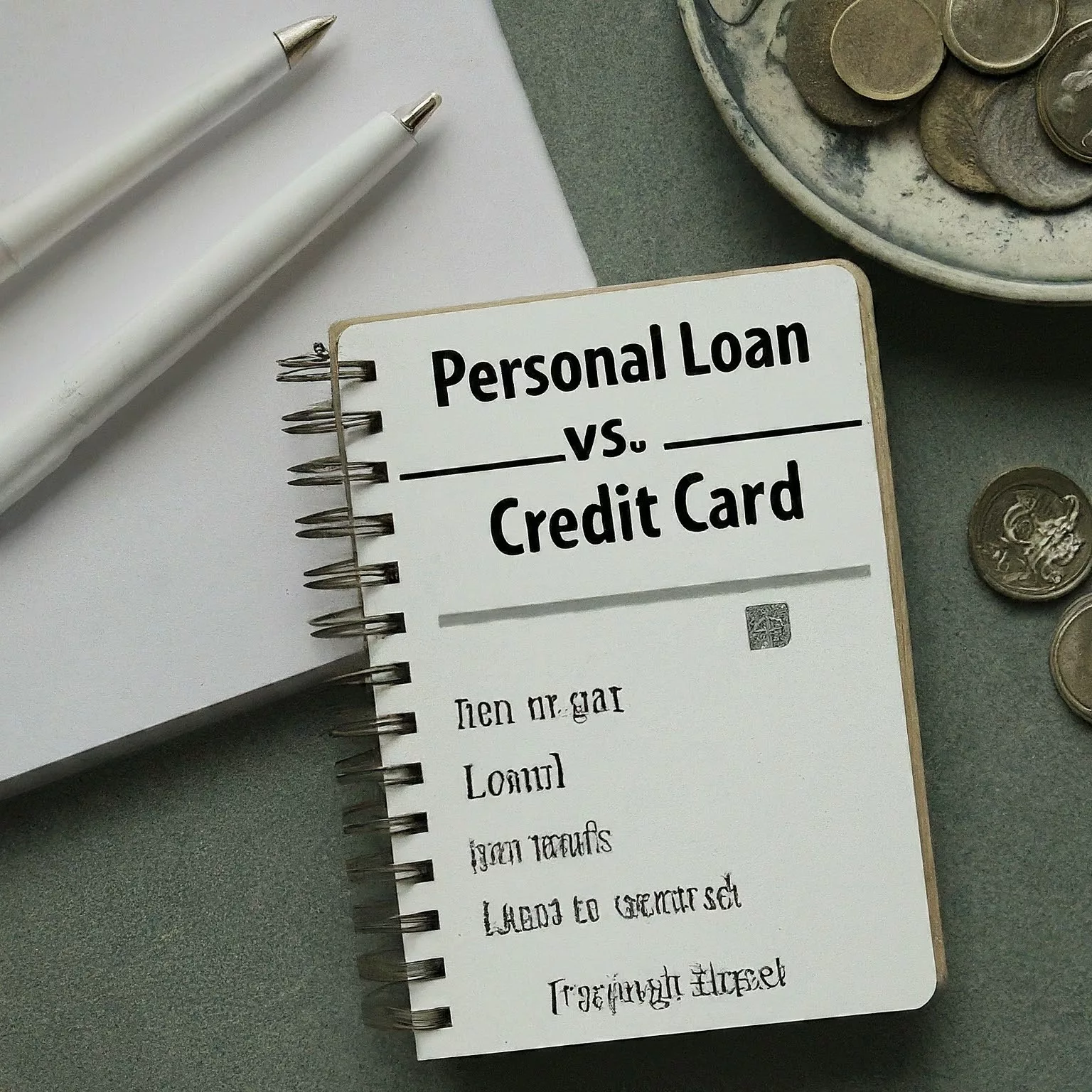Comparing credit cards vs. personal loans for big purchases
Are you planning a big purchase and wondering how to fund it without disturbing your savings? Many people face this challenge, especially when eyeing high-value items or significant urgent expenses. Whether it is a long-awaited house upgrade, a medical emergency, or a dream trip, finding the right financing option matters as much as the purchase itself.

Most people today turn to credit cards or personal loans for such expenses, each offering its own advantages and challenges. Although both offer quick access to funds without pledging collateral, they differ greatly in structure, repayment flexibility, interest rates, and suitability for specific needs.
Below is a detailed comparison of both options to assess how each supports big-ticket spending and long-term repayment comfort.
Understanding personal loans
A personal loan is an unsecured loan offered by banks. You can use the funds for weddings, travel, or house renovation, medical expenses, or any other planned or unplanned expense. The loan amount, tenure, and interest rate depend on your income, employment history, and credit score. You repay it in Equated Monthly Instalments (EMIs) over a pre-agreed period.
Key features of personal loans
- Minimal documentation
- 100% online process and instant approval
- Interest rates often lower than credit cards
- Convenient loan tenure ranging from 12 to 72 months
Pros
- Predictable EMIs help with financial planning
- Competitive interest rates for borrowers with strong credit scores
- Suitable for larger, one-time expenses
Example: If you availed a personal loan of ₹2 lakh at an interest rate of 12% for 3 years, your EMI will be approximately ₹6,643. With a set EMI, you can plan and manage your monthly spending more confidently.
Understanding credit cards
A credit card offers a revolving line of credit. You can spend up to a limit, repay, and utilise it again.
Key features of credit cards
- Interest-free period of 20 to 50 days, depending on the bank
- Interest applies if you do not pay the full bill before the due date
- Reward points and cashback on eligible purchases
- Widely accepted by merchants for online and in-store payments
- Credit limit adjusts based on your income and repayment history
Pros
- Quick access to credit without fresh documentation
- Helpful for short-term or smaller expenses
- Offers spending insights through detailed statements
- Zero-cost EMI options available to make big purchases affordable
Example: Suppose you buy a high-end smartphone worth ₹1 lakh using your credit card. If you repay the full amount before the due date, you won’t pay any interest. However, if you pay only the minimum amount due, interest of 3–4% per month (36–48% annually) will start accumulating on the remaining balance. This can make the big purchase significantly more expensive if not repaid in full on time.
Personal loan vs credit cards: When to choose what?
Personal loans make sense in the following situations:
- You have large, planned expenses like home renovations or family functions
- You prefer predictable EMIs over open-ended dues
- You need a longer repayment tenure (typically 1–5 years) to manage cash flow comfortably
- You are consolidating multiple high-interest debts
- You want to limit your borrowing to a single purpose
A credit card often proves the better choice when:
- You are managing smaller, short-term purchases frequently
- You want quick payment options for regular expenses like travel or dining
- You want to benefit from rewards, cashback, or loyalty programs
- You can repay the full balance by the bill due date and don’t need an extended repayment period
To sum up
Big purchases can feel gratifying, but how you finance them often defines their true total cost. Credit cards bring flexibility and convenience, whereas personal loans offer flexibility of repayment and typically lower interest costs. Each serves a purpose when utilised wisely. Rather than choosing one over the other, align the borrowing tool with your financial discipline, repayment capacity, and purpose of the expense.
By choosing consciously, you can make your big purchase add value to your life without harming your long-term financial health.
















